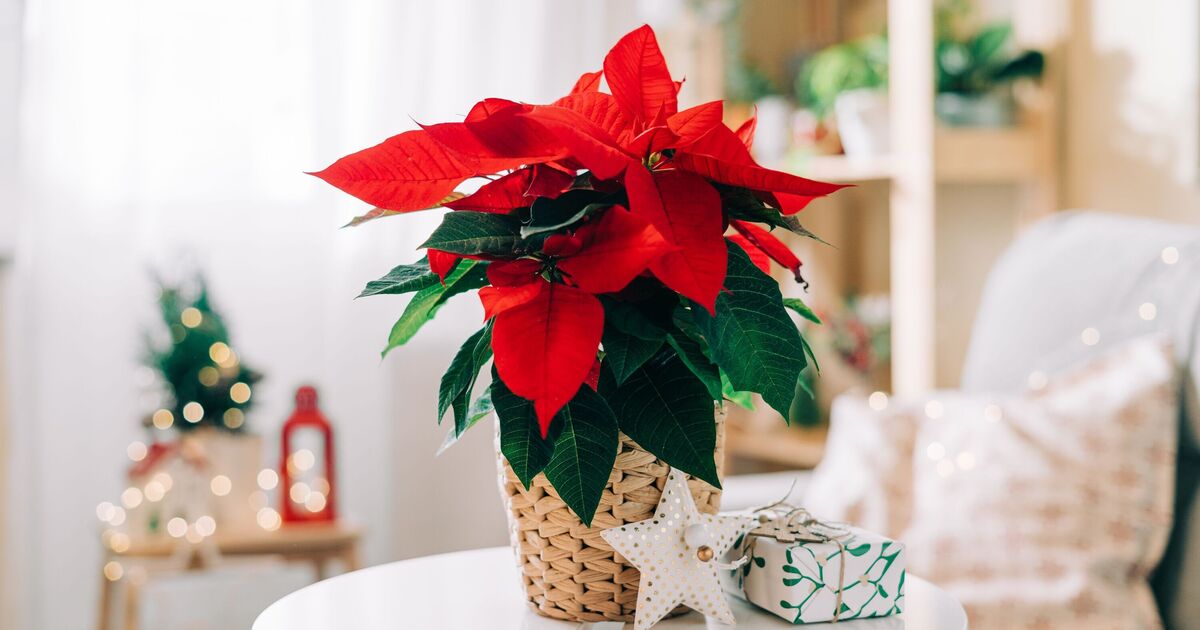Poinsettias are native to Mexico but can be found in most homes, supermarkets and garden centres at this time of year in the UK.
While poinsettias do look stunning throughout the festive period, they are one to lose leaves and look sad once Christmas is over.
When this happens, many homeowners then put their poinsettias in the bin or on the compost heap. However, the houseplants can actually continue to thrive for years if they’re cared for correctly.
With this in mind, gardening expert and managing director of Easy Garden Irrigation Sean Lade has shared his tops for looking after poinsettias.
He said: “Poinsettias add festive colour to your home and are popular gifts over Christmas, but they can be sensitive to temperature and moisture.
“Here’s how to care for them so that they last and thrive during the holiday season.”
How to care for poinsettias
1. Provide bright, indirect light
Sean said poinsettias need plenty of light to maintain their vibrant colours, but direct sunlight can scorch their leaves.
The best position for poinsettias is near a bright window but out of direct sunlight.
2. Avoid cold drafts and heat sources
Like many houseplants, poinsettias are sensitive to temperature fluctuations, so they should be kept away from windows, radiators, and doors.
3. Water poinsettias carefully
Sean explained that poinsettias need to be carefully watered; otherwise, they could develop root rot. He said: “Poinsettias are prone to root rot if overwatered.
“Instead of watering from the top, place the pot in a shallow dish of water for 10-15 minutes, allowing the roots to absorb moisture from below.
“Only water when the top inch of soil feels dry, and always empty any excess water from the saucer to prevent rot.”
4. Handle gently
Poinsettias are delicate plants that can wilt and drop if they are handled too frequently.
The plants need to be kept in a position away from children and pets where they won’t be bumped or handled too often.












